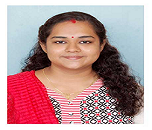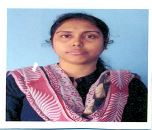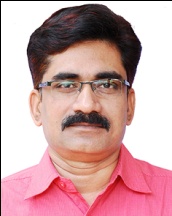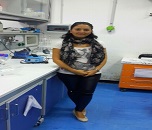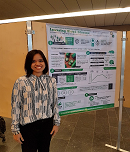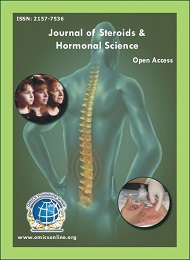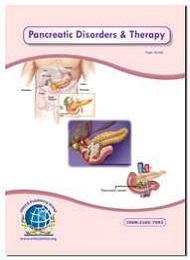Theme: Current Challenges and Innovations in diabetes and endocrine disorders
Herbal Diabetes 2017
ConferenceSeries Ltd extends its welcome to 23rd International Conference on Herbal and Alternative Remedies for Diabetes and Endocrine Disorders during November 2-4, 2017 Bangkok, Thailand with a theme “Current Challenges and Innovations in diabetes and endocrine disorders”. ConferenceSeries Ltd through its Open Access Initiative is committed to make genuine and reliable contributions to the scientific community.
ConferenceSeries Ltd Organizes 1000+ Conferences Every Year across USA, Europe & Asia with support from 1000 more scientific societies and Publishes 700+ Open access journals which contains over 100000 eminent personalities, reputed scientists as editorial board members.
Herbal Diabetes 2017 will focus on research directed toward its impact on clinical outcomes, through oral and poster presentations, workshop sessions, and influential plenary presentations.
This Conference is a platform for Diabetes and endocrinology students, faculty, deans, researchers, and leaders to collaborate on topics affecting diabetes and endocrine disorders. Attendees can take advantage of opportunities to learn about diabetes and endocrinology research from a variety of oral and poster presentations. Meet and network with nurses ranging from students to deans, faculty, and researchers. Take advantage of opportunities to collaborate with speakers from around the world. Attend prominent plenary sessions about relevant issues affecting Herbal diabetes.
Target Audience:
CEOs, Directors of Association and Societies, Scientists, Doctors, Professors, Diabetes Lecturers, Endocrine Lecturers, Nurses, Diabetes Practitioners, Medical Students, surgeons, young researchers, industrial delegates, Pharmaceutical Industries, Herbal institutes, Herbal research centers, Healthcare Industries, Pharmacological and Pharmacognosy Industries.
Track 1: Herbal medicine for Diabetes
Herbal medicine, also called botanical medicine or phytomedicine, refers to using a plant's seeds, berries, roots, leaves, bark, or flowers for medicinal purposes. They are sold as tablets, capsules, powders, teas, extracts, and fresh or dry plants. Many people believe "natural medicine" are always good and safe for them so use herbal medicines to try to maintain or improve their health. The use of herbal remedies is more prevalent in patients with chronic diseases asthma, end-stage renal disease, all endocrine disorders such as diabetes, Osteoporosis, Pancreas Disorders and Adrenal Disorders etc.
Related Conferences: 13th World Congress on Diabetes October 05-06, 2017 London,UK; 12th International Conference on Endocrinology and Diabetes Summit November 06-07, 2017 Singapore;20th World Summit on Diabetes, Nutrition, Metabolism & Medicare July 24-26,2017 Vancouver, Canada; 18th European Diabetes Congress July 17-18, 2017 Lisbon, Portugal; 10th Diabetologists ConferenceJuly 24-26,2017 Vancouver, Canada; 19th Asia Pacific Diabetes Conference July 20-22, 2017 Melbourne, Australia;7th European Diabetes and Endocrinology Congress May 18-19,2017 Munich, Germany ; 16th Global Diabetes Conference & Medicare Expo March 22-23, 2017 Rome, Italy; 8th International Conference on Adrenal & Thyroid Disorders, Treatment June 12-13, 2017 Taiwan, Taipei.
Track 2: Herbal Medicine for Endocrine disorders
The endocrine system is a network of glands that produce and release hormones that help control many important body functions, including the body's ability to change calories into energy that powers cells and organs. Herbal supplements for the treatment of Hormonal Problems such as Estrogen and Progesterone in Women and Treatment for menopausal Hormone Imbalance, etc
Related Conferences: 13th World Congress on Diabetes October 05-06, 2017 London,UK; 12th International Conference on Endocrinology and Diabetes Summit November 06-07, 2017 Singapore;20th World Summit on Diabetes, Nutrition, Metabolism & Medicare July 24-26,2017 Vancouver, Canada; 18th European Diabetes Congress July 17-18, 2017 Lisbon, Portugal; 10th Diabetologists ConferenceJuly 24-26,2017 Vancouver, Canada; 19th Asia Pacific Diabetes Conference July 20-22, 2017 Melbourne, Australia;7th European Diabetes and Endocrinology Congress May 18-19,2017 Munich, Germany ; 16th Global Diabetes Conference & Medicare Expo March 22-23, 2017 Rome, Italy; 8th International Conference on Adrenal & Thyroid Disorders, Treatment June 12-13, 2017 Taiwan, Taipei.
Track 3: Alternative Medical Therapies
Alternative Medical Therapies for diabetes have become increasingly popular the last several years. Alternative therapies with antidiabetic activity have been researched relatively and extensively. Ideal therapies should have a similar degree of efficacy without troublesome. Mechanism of Some alternative therapy used for lowering the blood glucose. 75% people with diabetes used nonprescribed supplements (herbal, vitamin, mineral, or others) and alternative medications. Alternative medicine tries to prevent and treat different conditions with common alternative methods such as Yoga, Exercise, Tai chi/yoga, Meditation, Herbs and supplements, Chiropractic, Aromatherapy, Homeopathic, Ayurvedic Medicine, used to treat diabetes and endocrine disorders.
Related Conferences: 10th Diabetologists Conference July 24-26,2017 Vancouver, Canada;7th European Diabetes and Endocrinology Congress May 18-19,2017 Munich, Germany ; 16th Global Diabetes Conference & Medicare Expo March 22-23, 2017 Rome, Italy;18th European Diabetes Congress July 17-18, 2017 Lisbon, Portugal;8th International Conference on Adrenal & Thyroid Disorders, Treatment June 12-13, 2017 Taiwan, Taipei;19th Asia Pacific Diabetes Conference July 20-22, 2017 Melbourne, Australia; 12th International Conference on Endocrinology and Diabetes Summit November 06-07, 2017 Singapore;20th World Summit on Diabetes, Nutrition, Metabolism & Medicare July 24-26,2017 Vancouver, Canada;13th World Congress on Diabetes October 05-06, 2017 London,UK.
Track 5: Acupuncture
Acupuncture is a form of TCM (Traditional Chinese Medicine) that has been practiced for centuries. It's based on the theory that energy. It involves inserting needles in different areas of the body. This releases chemicals in your brain that can lessen sensitivity to pain. This is done to influence the energy. Sometimes heat, pressure, or mild electrical current is used along with needles.
Related Conferences: 7th European Diabetes and Endocrinology Congress May 18-19,2017 Munich, Germany ; 16th Global Diabetes Conference & Medicare Expo March 22-23, 2017 Rome, Italy;18th European Diabetes Congress July 17-18, 2017 Lisbon, Portugal;8th International Conference on Adrenal & Thyroid Disorders, Treatment June 12-13, 2017 Taiwan, Taipei;19th Asia Pacific Diabetes Conference July 20-22, 2017 Melbourne, Australia; 12th International Conference on Endocrinology and Diabetes Summit November 06-07, 2017 Singapore;20th World Summit on Diabetes, Nutrition, Metabolism & Medicare July 24-26,2017 Vancouver, Canada; 10th Diabetologists Conference July 24-26,2017 Vancouver, Canada; 13th World Congress on Diabetes October 05-06, 2017 London,UK.
Track 6: Endocrine Disorders
The endocrine system is a network of glands that produce and release hormones that help control many important body functions, including the body's ability to change calories into energy that powers cells and organs. The endocrine system influences how your heart beats, how your bones and tissues grow, even your ability to make a baby. It plays a vital role in whether or not you develop diabetes, thyroid disease, growth disorders, sexual dysfunction, and a host of other hormone-related disorders.
Related Conferences: 18th European Diabetes Congress July 17-18, 2017 Lisbon, Portugal;8th International Conference on Adrenal & Thyroid Disorders, Treatment June 12-13, 2017 Taiwan, Taipei;19th Asia Pacific Diabetes Conference July 20-22, 2017 Melbourne, Australia;7th European Diabetes and Endocrinology Congress May 18-19,2017 Munich, Germany ; 16th Global Diabetes Conference & Medicare Expo March 22-23, 2017 Rome, Italy; 12th International Conference on Endocrinology and Diabetes Summit November 06-07, 2017 Singapore;20th World Summit on Diabetes, Nutrition, Metabolism & Medicare July 24-26,2017 Vancouver, Canada; 10th Diabetologists Conference July 24-26,2017 Vancouver, Canada; 13th World Congress on Diabetes October 05-06, 2017 London,UK.
Track 7: Gynecological Endocrinology
There are a large Number of Research institutes working on the Gynecological Endocrinology which are approximately 25 and the Number of Universities working on this topic are approximately 80 and funding for the research given by University or a research institute is around $20000 - $30000 including Academia 20% , 30% industry and Others 50%. Gynecological Endocrinology focuses on the treatment of disorders related to menstruation, fertility and menopause. Adolescent Gynecology, Pregnancy and Diabetes and Fetal-Placental neuroendocrine development refers to a subspecialty that focuses on the biological causes and its interventional treatment of infertility and its development.
Related Conferences: 10th Diabetologists Conference July 24-26,2017 Vancouver, Canada; 19th Asia Pacific Diabetes Conference July 20-22, 2017 Melbourne, Australia;7th European Diabetes and Endocrinology Congress May 18-19,2017 Munich, Germany ; 16th Global Diabetes Conference & Medicare Expo March 22-23, 2017 Rome, Italy; 8th International Conference on Adrenal & Thyroid Disorders, Treatment June 12-13, 2017 Taiwan, Taipei;13th World Congress on Diabetes October 05-06, 2017 London,UK; 12th International Conference on Endocrinology and Diabetes Summit November 06-07, 2017 Singapore;20th World Summit on Diabetes, Nutrition, Metabolism & Medicare July 24-26,2017 Vancouver, Canada; 18th European Diabetes Congress July 17-18, 2017 Lisbon, Portugal.
Track 8: Pediatric Endocrinology
Pediatric endocrinology is a medical subspecialty dealing with disorders of the endocrine glands, such as variations of physical growth and sexual development in childhood, diabetes and many more. By age, pediatric endocrinologists, depending upon the age range of the patients they treat, care for patients from infancy to late adolescence and young adulthood. By disease, the most common disease of the specialty is type 1diabetes, which usually accounts for at least 50% of a typical clinical practice. The next most common problem is growth disorders, especially those amenable to growth hormone treatment. Pediatric endocrinologists are usually the primary physicians involved in the medical care of infants and children with intersex disorders. The specialty also deals with hypoglycemia and other forms of hyperglycemia in childhood, variations of puberty, as well other adrenal, thyroid, and pituitary problems. Many pediatric endocrinologists have interests and expertise in bone metabolism, lipid metabolism, adolescent gynecology, or inborn errors of metabolism.
Related Conferences: 19th Asia Pacific Diabetes Conference July 20-22, 2017 Melbourne, Australia;7th European Diabetes and Endocrinology Congress May 18-19,2017 Munich, Germany ; 16th Global Diabetes Conference & Medicare Expo March 22-23, 2017 Rome, Italy; 12th International Conference on Endocrinology and Diabetes Summit November 06-07, 2017 Singapore;20th World Summit on Diabetes, Nutrition, Metabolism & Medicare July 24-26,2017 Vancouver, Canada; 10th Diabetologists Conference July 24-26,2017 Vancouver, Canada; 18th European Diabetes Congress July 17-18, 2017 Lisbon, Portugal;8th International Conference on Adrenal & Thyroid Disorders, Treatment June 12-13, 2017 Taiwan, Taipei; 13th World Congress on Diabetes October 05-06, 2017 London,UK.
Track 9: Reproductive Endocrinology
Reproductive endocrinology is a surgical subspecialty of obstetrics and gynecology that trains physicians in reproductive medicine addressing hormonal functioning as it pertains to reproduction as well as the issue of infertility. While most Reproductive endocrinology specialists primarily focus on the treatment of infertility, reproductive endocrinologists are trained to also evaluate and treat hormonal dysfunctions in females and males outside infertility.
Related Conferences: 12th International Conference on Endocrinology and Diabetes Summit November 06-07, 2017 Singapore;20th World Summit on Diabetes, Nutrition, Metabolism & Medicare July 24-26,2017 Vancouver, Canada; 10th Diabetologists Conference July 24-26,2017 Vancouver, Canada; 19th Asia Pacific Diabetes Conference July 20-22, 2017 Melbourne, Australia;7th European Diabetes and Endocrinology Congress May 18-19,2017 Munich, Germany ; 16th Global Diabetes Conference & Medicare Expo March 22-23, 2017 Rome, Italy; 18th European Diabetes Congress July 17-18, 2017 Lisbon, Portugal;8th International Conference on Adrenal & Thyroid Disorders, Treatment June 12-13, 2017 Taiwan, Taipei; 13th World Congress on Diabetes October 05-06, 2017 London,UK.
Track 10: Neuroendocrinology
Neuroendocrinology is the study of the interaction between the nervous system and the endocrine system, including the biological features of the cells involved, and how they communicate. The nervous and endocrine systems often act together in a process called neuroendocrine integration, to regulate the physiological processes of the human body. Neuroendocrinology arose from the recognition that the brain, especially the hypothalamus, controls secretion of pituitary gland hormones, and has subsequently expanded to investigate numerous interconnections of the endocrine and nervous systems. The neuroendocrine system is the mechanism by which the hypothalamus maintains homeostasis, regulating reproduction, metabolism, eating and drinking behavior, energy utilization, osmolality and blood pressure.
Related Conferences: 7th European Diabetes and Endocrinology Congress May 18-19,2017 Munich, Germany ; 16th Global Diabetes Conference & Medicare Expo March 22-23, 2017 Rome, Italy; 8th International Conference on Adrenal & Thyroid Disorders, Treatment June 12-13, 2017 Taiwan, Taipei;20th World Summit on Diabetes, Nutrition, Metabolism & Medicare July 24-26,2017 Vancouver, Canada; 18th European Diabetes Congress July 17-18, 2017 Lisbon, Portugal; 10th Diabetologists ConferenceJuly 24-26,2017 Vancouver, Canada; 19th Asia Pacific Diabetes Conference July 20-22, 2017 Melbourne, Australia; 13th World Congress on Diabetes October 05-06, 2017 London,UK; 12th International Conference on Endocrinology and Diabetes Summit November 06-07, 2017 Singapore.
Track 11: Treatment for Diabetes
Current Research in diabetes is focusing on developing Implantable insulin pumps which introduced Insulin pump therapy, disruption of fat metabolism, invasive and non-invasive glucose sensors, Artificial pancreas, New insulin analogues and delivery systems like inhaled, transdermal and implantable devices, Insulin Pens, Bariatric surgery and Conventional therapeutic approaches, devices for diabetic prevention, new technologies for treating obesity and many more.
Related Conferences: 20th World Summit on Diabetes, Nutrition, Metabolism & Medicare July 24-26,2017 Vancouver, Canada; 9th International Conference on Endocrinology and Diabetes Summit September 13-14, 2017 Singapore; 18th European Diabetes Congress July 17-18, 2017 Lisbon, Portugal; 10th Diabetologists Conference July 24-26,2017 Vancouver, Canada; 19th Asia Pacific Diabetes Conference July 20-22, 2017 Melbourne, Australia;7th European Diabetes and Endocrinology Congress May 18-19,2017 Munich, Germany ; 16th Global Diabetes Conference & Medicare Expo March 22-23, 2017 Rome, Italy; 8th International Conference on Adrenal & Thyroid Disorders, Treatment June 12-13, 2017 Taiwan, Taipei; 13th World Congress on Diabetes October 05-06, 2017 London,UK; 12th International Conference on Endocrinology and Diabetes Summit November 06-07, 2017 Singapore.
Track 12: Diabetes Complications
The risk factors for type 1 diabetes are still being researched. However, having a family member with type 1 diabetes slightly increases the risk of developing the disease. Environmental factors and exposure to some viral infections have also been linked to the risk of developing type 1 diabetes. Several risk factors have been associated with type 2 diabetes and include, Overweight, Physical inactivity, Unhealthy diet.
Related Conferences: 13th World Congress on Diabetes October 05-06, 2017 London, UK; 12th International Conference on Endocrinology and Diabetes Summit November 06-07, 2017 Singapore;20th World Summit on Diabetes, Nutrition, Metabolism & Medicare July 24-26,2017 Vancouver, Canada; 9th International Conference on Endocrinology and Diabetes Summit September 13-14, 2017 Singapore; 18th European Diabetes Congress July 17-18, 2017 Lisbon, Portugal; 10th Diabetologists Conference July 24-26,2017 Vancouver, Canada; 19th Asia Pacific Diabetes Conference July 20-22, 2017 Melbourne, Australia;7th European Diabetes and Endocrinology Congress May 18-19,2017 Munich, Germany ; 16th Global Diabetes Conference & Medicare Expo March 22-23, 2017 Rome, Italy; 8th International Conference on Adrenal & Thyroid Disorders, Treatment June 12-13, 2017 Taiwan, Taipei;
Track 13: Diabetes Management
Diabetes can be very complicated, As diabetes is a prime risk factor for cardiovascular disease, controlling other risk factors which may give rise to secondary conditions, as well as the diabetes itself, is one of the facets of diabetes management. Checking cholesterol, LDL, HDL and triglyceride levels may indicate hyperlipoproteinemia, which may warrant treatment with hypolipidemic drugs. Checking the blood pressure and keeping it within strict limits (using diet and antihypertensive treatment) protects against the retinal, renal and cardiovascular complications of diabetes. Regular follow-up by foot health specialists is encouraged to prevent the development of diabetic foot. Annual eye exams are suggested to monitor for progression of diabetic retinopathy. Both Type 1 and Type 2 diabetics can see dramatic effects on their blood sugars through controlling their diet, and some Type 2 diabetics can fully control the disease by dietary modification.
Related Conferences: 19th Asia Pacific Diabetes Conference July 20-22, 2017 Melbourne, Australia;7th European Diabetes and Endocrinology Congress May 18-19,2017 Munich, Germany ; 16th Global Diabetes Conference & Medicare Expo March 22-23, 2017 Rome, Italy; 8th International Conference on Adrenal & Thyroid Disorders, Treatment June 12-13, 2017 Taiwan, Taipei; 13th World Congress on Diabetes October 05-06, 2017 London,UK; 12th International Conference on Endocrinology and Diabetes Summit November 06-07, 2017 Singapore;20th World Summit on Diabetes, Nutrition, Metabolism & Medicare July 24-26,2017 Vancouver, Canada; 9th International Conference on Endocrinology and Diabetes Summit September 13-14, 2017 Singapore; 18th European Diabetes Congress July 17-18, 2017 Lisbon, Portugal; 10th Diabetologists Conference July 24-26,2017 Vancouver, Canada;
Importance & Scope:
Diabetes mellitus (DM) is the most common of the endocrine disorders. The prevalence of diabetes mellitus is expected to reach up to 4.4% in the world by 2030. Among all type of diabetes, type 2 diabetes is main complication. Currently available treatment options in modern medicine have several adverse effects. Therefore, there is a need to develop safe and effective treatment modalities for diabetes and endocrine disorders. Medical plants play an important role in the management of diabetes mellitus and endocrine disorders especially in developing countries where resources are meager.
As per ancient literature, more than 800 plants are reported to have antidiabetic properties.[59] Ethanopharmacological surveys indicate that more than 1200 plants are used in traditional medicine for their allied hypoglycemic activity. In diabetes, some herbal alternatives are proven to provide symptomatic relief and assist in the prevention of the secondary complication of the disease. Some herbs have also been proven to help in regeneration of ß-cells and in overcoming resistance. In addition to maintaining normal blood sugar level, some herbs are also reported to possess antioxidant activity and cholesterol lowering action. The management of type 2 diabetes mellitus is possible with drug that can lower the blood sugar level in one hand and restore the liver glycogen level on the other hand.
The limitation of currently available oral antidiabetic agents either in terms of efficacy/safety coupled with the emergence of the disease into global epidemic have encouraged alternative therapy that can manage diabetes more efficiently and safely.
Why Thailand:
Thailand is a developing country in Southeast Asia with an acknowledged requirement for improvement of the national medical system. Thailand is facing increasing numbers of patients with diabetes due to unhealthy diets, high obesity rates, and an aging society. Diabetes is a considerable burden for developing countries as it reduces quality of life, increases mortality, and drives up healthcare costs. The disease detection rate in Thailand has improved in recent years.
Diabetes is a chronic disease that requires life-long treatment and greatly increases the risk of serious, costly complications including heart attack, stroke, kidney failure, blindness and limb amputation.
Today, 382 million people in the world have diabetes.
The number of people with diabetes is increasing in every country in the world.
Today, 3.2 million people have diabetes in Thailand.
By 2035 an additional 1.1 million Thai adults will live with diabetes.
An estimated 183 people die of the consequences of diabetes in Thailand... every day.
This is one reason that there are very few endocrinologists in Thailand. This shortage is in spite of the many patients with endocrinology problems. Annually, up to 5 million patients with endocrine disease are recorded in Thailand, and this is significantly higher than the number of endocrinologists in Thailand (the present number is 474). The primary care of common endocrine disorders, such as diabetes mellitus and thyroid disease is still delivered by the general practitioner.
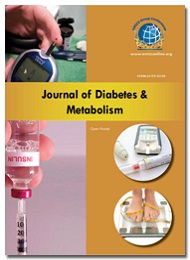
Herbal Medicine:
Although approximately 80 percent of people today depend upon herbal medication as a component of their primary healthcare according to the World Health Organization, there is still great concern about the safety and efficacy of herbal use.
The number of patients seeking alternate and herbal therapy is growing exponentially. Herbal medicines are the synthesis of therapeutic experiences of generations of practicing physicians of indigenous systems of medicine for over hundreds of years. Herbal medicines are now in great demand in the developing world for primary health care not because they are inexpensive but also for better cultural acceptability, better compatibility with the human body and minimal side effects. However, recent findings indicate that all herbal medicines may not be safe as severe consequences are reported for some herbal drugs. Most herbal products on the market today have not been subjected to drug approval process to demonstrate their safety and effectiveness. Thousand years of traditional use can provide us with valuable guidelines to the selection, preparation and application of herbal formulation. To be accepted as viable alternative to modern medicine, the same vigorous method of scientific and clinical validation must be applied to prove the safety and effectiveness of a therapeutical product. In the present review we attempted to describe the present scenario and project the future of herbal medicine.

The statistics are alarming;
The diabetes will be one of the world leading cause of death and disability with next quarter century.
30 million people were diagnosed with diabetes worldwide in 1985, by 1995 the number had risen to 135 million, and at the current rate there will be some 300 million by the year 2025 as predicted by the WHO. Currently, there are more than 17 million type 2 diabetic patients in the United States (or ~5.9% of the population), 11 million in Europe, and 6 million in Japan; which represents a potential primary therapeutic market of over $6 billion. In the United States in 1997, the American Diabetes Association (ADA) reports that the total economic cost of diabetes was estimated to be $98 billion which includes $44 billion in direct medical and treatment costs, and $54 billion in indirect costs related to disability and mortality. The prevalence of all forms of diabetes is estimated to be 2%-3% of the world's population, with the number of diabetics increasing by 4%-5% per annum.

Diagnosis of diabetes by age and sex group

Conference Highlights:
Herbal medicine for Diabetes
Herbal Medicine for Endocrine disorders
Alternative Medical Therapies
Acupuncture
Endocrine Disorders
Gynecological Endocrinology
Pediatric Endocrinology
Reproductive Endocrinology
Neuroendocrinology
Treatment for Diabetes
Obesity & Metabolic Disorders
Risk Factors Related to Diabetes
Diet & Nutrition
Diabetes Management
Major diabetes and endocrinology Universities and hospitals:
Mahidol University
Prasart Neurological Hospital, Thailand
Somdejchaopraya Hospital, Thailand
Sri-Nakharinwirot University, Bangkok, Thailand
Samitivej Children’s Hospital’s Growth, Endocrine and Diabetes Center
Bangkok Hospital
BNH Hospital
Chaophya Hospital
Saint Louis Hospital
Bangkok Christian Hospital
Bumrungrad International Hospital in Bangkok, Thailand
Conference Highlights
- Herbal medicine for Diabetes
- Alternative Medical Therapies
- Acupuncture
- Endocrine Disorders
- Gynecological Endocrinology
- Pediatric Endocrinology
- Reproductive Endocrinology
- Neuroendocrinology
- Treatment for Diabetes
- Diabetes Complications
- Diabetes Management
- Herbal Medicine for Endocrine disorders
- Obesity & Metabolic Disorders
- Diet & Nutrition
To share your views and research, please click here to register for the Conference.
To Collaborate Scientific Professionals around the World
| Conference Date | November 2-4, 2017 | ||
| Sponsors & Exhibitors |
|
||
| Speaker Opportunity Closed | Day 1 | Day 2 | Day 3 |
| Poster Opportunity Closed | Click Here to View | ||
Useful Links
Special Issues
All accepted abstracts will be published in respective Our International Journals.
- Journal of Diabetes and Metabolism
- Pancreatic Disorders and Therapy
- Journal of Steroids and Hormonal Science
Abstracts will be provided with Digital Object Identifier by






